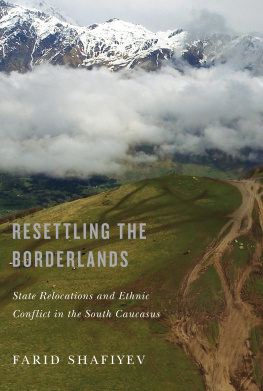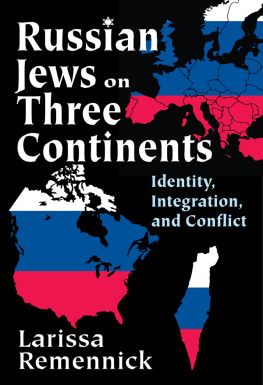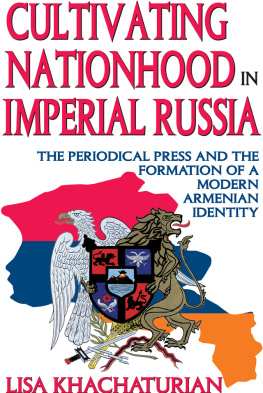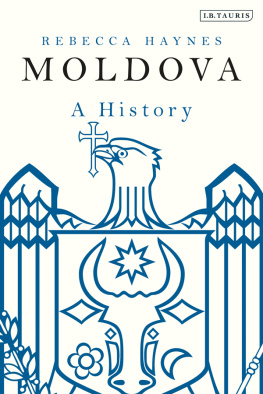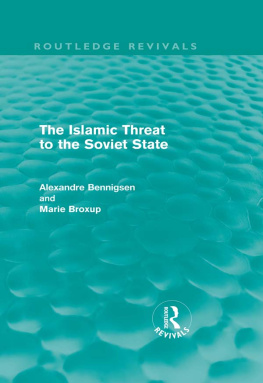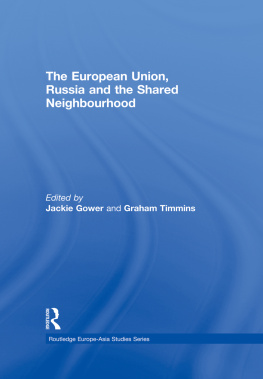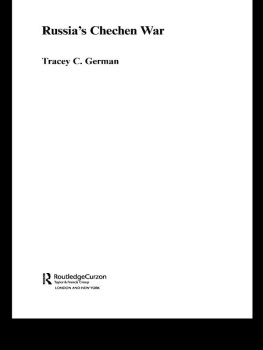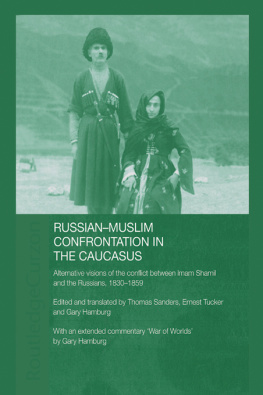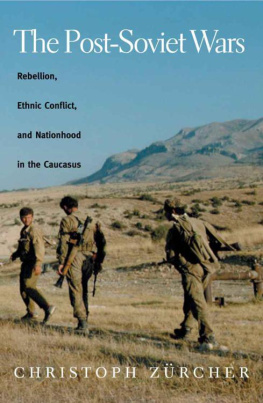
RESETTLING THE BORDERLANDS
Resettling the Borderlands
State Relocations and Ethnic Conflict in the South Caucasus
FARID SHAFIYEV
McGill-Queens University Press
Montreal & Kingston London Chicago
McGill-Queens University Press 2018
ISBN 978-0-7735-5352-1 (cloth)
ISBN 978-0-7735-5353-8 (paper)
ISBN 978-0-7735-5372-9 (ePDF)
ISBN 978-0-7735-5373-6 (ePUB)
Legal deposit second quarter 2018
Bibliothque nationale du Qubec
Printed in Canada on acid-free paper that is 100% ancient forest free
(100% post-consumer recycled), processed chlorine free.

We acknowledge the support of the Canada Council for the Arts, which last year invested $153 million to bring the arts to Canadians throughout the country.
Nous remercions le Conseil des arts du Canada de son soutien. Lan dernier, le Conseil a investi 153 millions de dollars pour mettre de lart dans la vie des Canadiennes et des Canadiens de tout le pays.
Library and Archives Canada Cataloguing in Publication
Shafiyev, Farid, 1969, author
Resettling the borderlands : state relocations and ethnic conflict in the South Caucasus / Farid Shafiyev.
Includes bibliographical references and index.
Issued in print and electronic formats.
ISBN 978-0-7735-5352-1 (hardcover). ISBN 978-0-7735-5353-8 (softcover). ISBN 978-0-7735-5372-9 (PDF). ISBN 978-0-7735-5373-6 (EPUB)
1. Forced migration Caucasus, South History 19th century.
2. Forced migration Caucasus, South History 20th century.
3. Caucasus, South Ethnic relations History 19th century.
4. Caucasus, South Ethnic relations History 20th century.
5. Ethnic conflict Caucasus, South History 19th century.
6. Ethnic conflict Caucasus, South History 20th century.
7. Caucasus, South History 19th century. 8. Caucasus, South History 20th century. I. Title.
DK509.S524 2018 | 305.8009475 | C2017-907238-2 C2017-907239-0 |
This book was typeset by True to Type in 10.5/13 Sabon
To the memory of my mother, Kubra Huseynova, and father, Rauf Shafiyev
I pay tribute to the memory of all those who perished during the forced resettlements, deportations, and exiles. I also pay personal tribute to the memory of my great-grandfather, Novruz Shafiyev, who was arrested and exiled to Siberia in 1937 and died in a place unknown to my family.
Contents
Tables
Acknowledgments
It is a great pleasure to acknowledge those who made my research journey possible.
I owe a debt of gratitude to Dr Jeff Sahadeo, my supervisor and instructor in Russian history, whose insightful suggestions, careful reading, wise criticism, and constant attention to all my issues during the doctoral program made my research not only a bit easier but also enjoyable. I am also very grateful to the leadership of the Carleton University Department of History, particularly Dr Dominique Marshall, department chair, and Dr Jennifer Evans, graduate chair. I also express my heartfelt thanks to Ms Joan White, graduate administrator, for the great assistance she rendered to me.
During my work on this manuscript I benefited greatly from many professors and instructors: Danielle Kinsey, for her acute vision of imperialism; James Opp and David Dean, for enlightening me about Michel Foucault, Edward Said, and many other thinkers; Christoph Zuercher from Ottawa University, whose reflections on the nexus between histories and conflicts were important guidance. Other Carleton University faculty members, such as Carter Elwood, Susan Whitney, John Walsh, and Paul Litt, provided helpful comments and suggestions. Critical notes from Nicholas Breyfogle at Ohio State University helped me to improve the manuscript.
During my previous studies at Baku State University and Harvard University, I learned from many excellent instructors, not all in the field of history but in adjacent disciplines, such as international relations, conflict studies, etc. Dr Eldar Ismayilov from Baku State University, who was one of my first instructors in the beginning of the 1990s when Azerbaijan was still under the Soviets encompassed a depth and width of vision on the Soviet imperial legacy in the South Caucasus. American mentors Joseph Nye, Noam Chomsky, Michael Ignatieff, Todd Pittinsky, and John Thomas imparted intellectual contributions that broadened my horizons. My high school history teacher Aron Davidovich Vizel had a passion for the science of history that left an indelible imprint.
Several people were instrumental throughout my archival research: Mr Atakhan Pashayev, head of the Azerbaijani State Archives, Mr Anar Mamedov, Ms Farida Aslanova, Mr Rustam Aleskerov, and many others.
I am grateful to Ms Marguerite Marlin and Mr Michael Haynes for helping me edit my manuscript.
I extend my sincere appreciation to McGill-Queens University Press, especially to Ms Kyla Madden and anonymous reviewers for their help in improving and publishing my research outcome, as well as to Kate Merriman for her great work of copyediting, Kathleen Fraser, Finn Purcell, Amy Hemond, Ryan Van Huijstee, Filomena Falocco, Paloma Friedman, and others involved in the process.
I have dedicated this study to the memory of my parents: my mother, Kubra Huseynova, and father, Rauf Shafiyev; they supported me in every endeavour, including academic studies. My intellectual discussions with my brother Kamran Shafiyev were no less important. So were those with many friends and colleagues.
My wife, Ulker Shafiyeva, made my life much easier by taking care of everything at home when I spent endless hours in the office or in front of the computer. She is the main encourager of my scientific adventure, while my daughter Selin is my infinite source of inspiration.
Abbreviations and Terms
CC CP | Central Committee of the Communist Party |
GULAG | Glavnoe Upravlenie ispravitelno-trudovykh LAGerei (Main Administration of Corrective Camps) |
GUZZ | Main Administration of Agriculture and State Domains in Imperial Russia |
MRA | Main Resettlement Administration (Glavnoye Pereselencheskoye Upravleniye) |
NKAO | Nagorno-Karabakh Autonomous Oblast (Province) |
NKVD | Ministry of Interior in the USSR |
USSR and SSR | the Union of the Soviet Socialist Republics, and for national republics, i.e., the Azerbaijani or Armenian SSR |
VKP (b) | Russian Communist Party of the Bolsheviks |
guberniya | governorate, territorial unit in Imperial Russia |
inorodtsy | alien subjects of the Russian empire (the peculiarity of this term is discussed in the book) |
kolkhoz | a collective farm in the Soviet Union |
kolkhoznik | a member of a kolkhoz |
kulaks | wealthy peasants |
namestnichestvo | viceroyalty |
namestnik | viceroy |
Narkom | Ministry in the Soviet Union between the 1920s and 1960s |
oblast |
Next page
